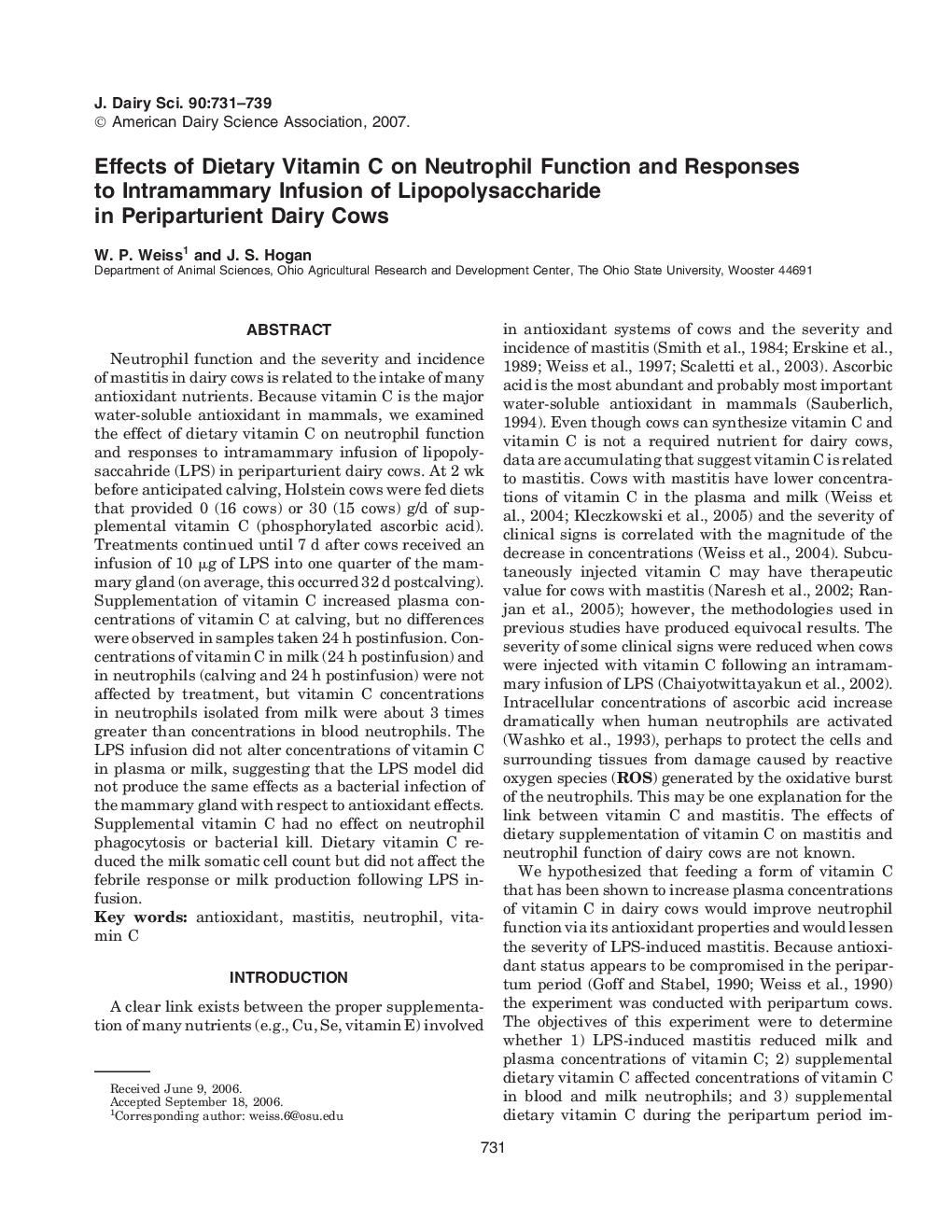| Article ID | Journal | Published Year | Pages | File Type |
|---|---|---|---|---|
| 2440339 | Journal of Dairy Science | 2007 | 9 Pages |
Abstract
Neutrophil function and the severity and incidence of mastitis in dairy cows is related to the intake of many antioxidant nutrients. Because vitamin C is the major water-soluble antioxidant in mammals, we examined the effect of dietary vitamin C on neutrophil function and responses to intramammary infusion of lipopolysaccahride (LPS) in periparturient dairy cows. At 2 wk before anticipated calving, Holstein cows were fed diets that provided 0 (16 cows) or 30 (15 cows) g/d of supplemental vitamin C (phosphorylated ascorbic acid). Treatments continued until 7 d after cows received an infusion of 10 μg of LPS into one quarter of the mammary gland (on average, this occurred 32 d postcalving). Supplementation of vitamin C increased plasma concentrations of vitamin C at calving, but no differences were observed in samples taken 24 h postinfusion. Concentrations of vitamin C in milk (24 h postinfusion) and in neutrophils (calving and 24 h postinfusion) were not affected by treatment, but vitamin C concentrations in neutrophils isolated from milk were about 3 times greater than concentrations in blood neutrophils. The LPS infusion did not alter concentrations of vitamin C in plasma or milk, suggesting that the LPS model did not produce the same effects as a bacterial infection of the mammary gland with respect to antioxidant effects. Supplemental vitamin C had no effect on neutrophil phagocytosis or bacterial kill. Dietary vitamin C reduced the milk somatic cell count but did not affect the febrile response or milk production following LPS infusion.
Related Topics
Life Sciences
Agricultural and Biological Sciences
Animal Science and Zoology
Authors
W.P. Weiss, J.S. Hogan,
